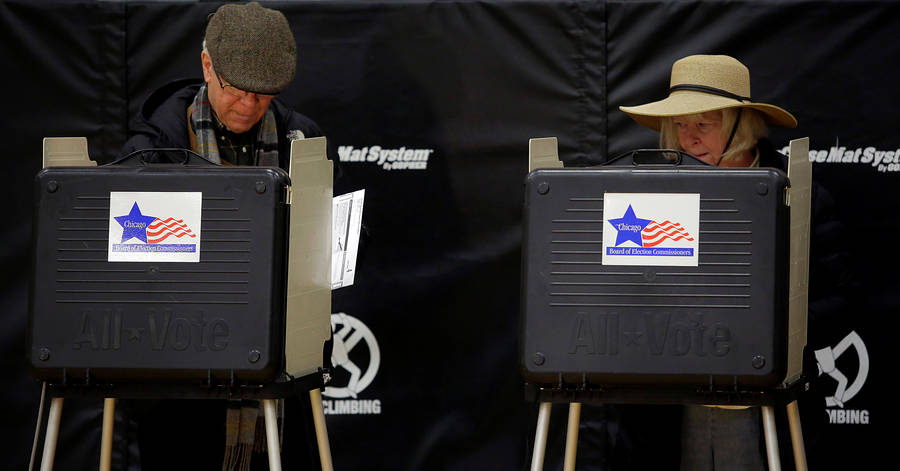By: Gerard Baker – wsj.com –
If there’s one thing everyone knows about modern politics, it’s that the key to the next election and the longer-term trends beyond is the rising tide of younger voters. We’ve become used to the idea that the young—more progressive in their values and more Democratic in their voting habits—are the future, and the rest of us had just better adapt or (as we will soon enough) die.
But in at least a strictly demographic, statistical sense, this is completely wrong. In political terms, the old are the future.
According to the U.S. Census Bureau, the largest increases in people voting by age groups in the past few presidential elections have come from those over 65—and they will be even more significant in the next several elections.
The number of voting-eligible citizens increased by almost nine million between 2012 and 2016. Of that total increase, almost six million people (around two-thirds) were over 65.
Because older voters tend both to register and to vote in higher numbers than young ones, the proportion of the increase in voters last time who were over 65 was substantially higher; 80% of the increase in voters in 2016 were of pensionable age. And in terms of votes cast, the 2016 election was the first time in decades that voters over 65 outnumbered voters between 18 and 34.
In Barack Obama’s win in 2008, the number of young voters exceeded the number of older voters by more than six million. In Donald Trump’s victory in 2016, the number of old voters exceeded the number of youthful ones by more than a million.
In the next presidential election, according to estimates by the Pew Research Center, 23% of voters will be over 65, the highest proportion of the electorate of that age since 1970.
In a sense, all this ought to be obvious. As with all advanced economies, the U.S. has an aging population. Birthrates peaked during the baby boom period from 1946-64 and have slowed substantially since, and Americans are living longer than ever. In election after election, older voters have tended to be more conservative: In 2016, voters over 65 voted 52% for Mr. Trump, while voters from 18 to 34 voted 53% for Hillary Clinton.
So for all the excitement about millennials and voters from Generations X, Y and Z, with all their liberal ideals, they are going to be increasingly outnumbered for at least the next few elections by grumpy conservative geezers.
I exaggerate, of course. We don’t know the political ramifications of this graying electorate. The key question is whether there are political characteristics intrinsically identified with older voters and indeed aging, or whether the current and recent cohorts of older voters just happen to be more conservative than the arriving cohorts of younger voters.
Put another way: Will today’s youth’s political preferences—all that enthusiasm for socialism and so on—turn out to be as callow as their fashionable tastes? Will they age (mature?) into traditional conservative voters?
The evidence is mixed. Voters now in their 20s and 30s with liberal values on issues such as same-sex marriage and racial equality are unlikely to change those views as they get older. But it is also a time-honored political truth that age brings with it greater responsibility (and, some would say, wisdom) in a way that makes people more politically conservative—in economics at least. Family responsibilities trump abstract humanitarian principles, and as people ascend the income ladder, the shock of having to pay more of their hard-earned income in taxes starts to tear shreds from their long-held support (when they paid nothing for them) for expensive social programs. If you aren’t a socialist when you’re 20, you don’t have a heart, as we used to say when I was a 20-year-old socialist. If you’re still a socialist when you’re 50, you don’t have a brain.
“It’s a war of the generations out there. And the old people are winning,” says Mark Penn, chief strategist to Mrs. Clinton’s 2008 presidential campaign and president of the Stagwell Group, a digital marketing investment group. “Older voters have turned far more conservative than they were when they were young and before they had families—except when it comes to marijuana. Expect the same from the current generation over time.”
Of course, many other demographic cross-currents are at work—including the steady decline of white voters as a share of the electorate. But the easy assumption that our leftward-leaning youth will determine our future needs to be checked.
As that voice of the boomers, Bob Dylan, might have put it, “Ah, but I was so much older then. I’m younger than that now.”
To see this article and subscribe to others like it, click read more.
Source: Older Voters Are the Future of American Politics – WSJ
 Listen Online
Listen Online Watch Online
Watch Online Find a Station in Your Area
Find a Station in Your Area









 Listen Now
Listen Now Watch Online
Watch Online
